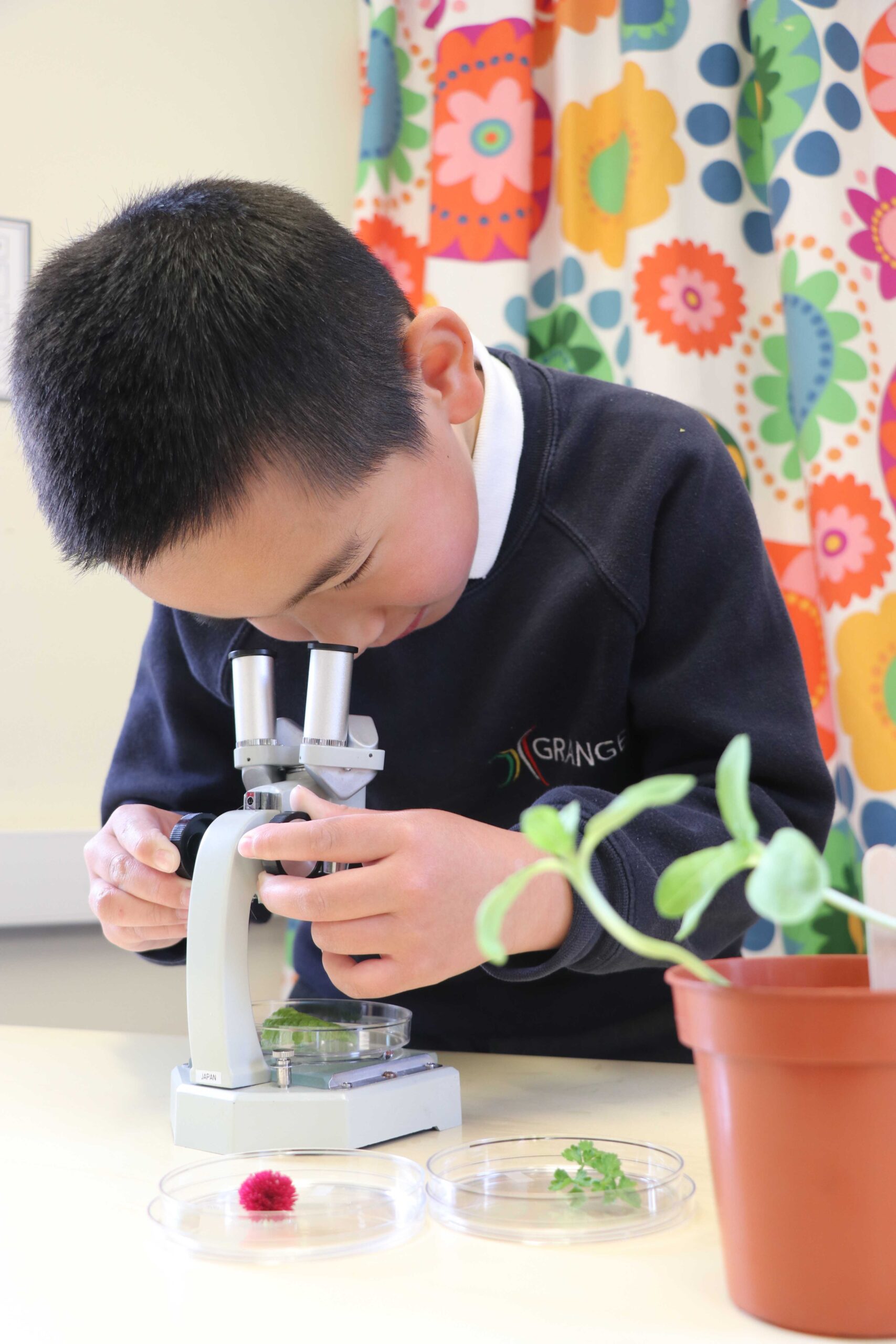Science
Science in Grange Community Nursery and Primary School is a vibrant and valued core subject. Each class learns Science for at least two hours a week through a rich and varied curriculum coverage. Enquiry lies at the heart of Science in our school and throughout the year, each class will experience the five different enquiry types at least once. These extend and give real-life application to the skills and knowledge taught over the year. The five enquiry types comprise research, fair testing, sorting and grouping, pattern-seeking and observation over time.
At our school, Science opens up doors. We understand the potential that it brings us and endeavours to explore as many careers as we can by inviting visitors to speak to the children. During Science week in March, we carry out a range of activities to encourage our children to understand how science can be used to explain what is occurring, predict how things will behave, and analyse causes.
Every single Science lesson is rooted in our Principles of Science Teaching. We have used both pupil and teacher voices to create these principles.
In 2023, the school was awarded the Primary Science Quality Mark which celebrates a commitment to excellence in science teaching and learning. The Primary Science Quality Mark (PSQM) is the only national award scheme to develop and celebrate the quality of science teaching and learning in primary schools. Schools achieve a PSQM award through a year-long process of the initial audit, followed by action and reflection.
At our school, the principles underpinning teaching and learning in science are:
- Teachers and teaching assistants deliver a stimulating curriculum that promotes enthusiasm and curiosity.
- Pupils find things out for themselves through investigations or by researching secondary sources.
- Lessons are effectively adapted to allow all pupils to make good progress.
- Pupils are fully involved in planning, carrying out and evaluating investigations.
- Learning occurs outside the classroom, either on our school grounds or during educational visits.
- Teachers’ scientific subject knowledge is secure and they deliver the curriculum confidently.
- Adequate resources are available and easily accessible for science lessons.
- Pupils receive regular feedback, both orally and through marking, so that they know how to improve science understanding and skills.
- Pupils learn through first-hand practical activities.
- Pupils understand how their science learning in school relates to the outside world.

